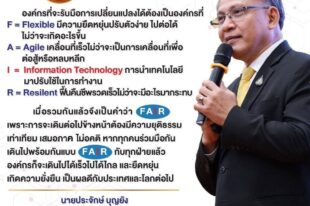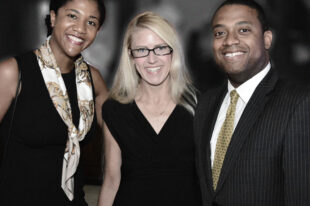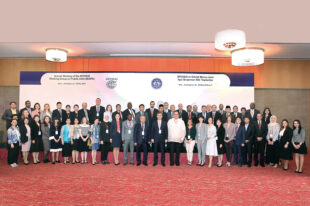Looking Towards the Future of Accountability: Highlights from the PASAI Congress on Enhancing Public Auditing in the Pacific Region
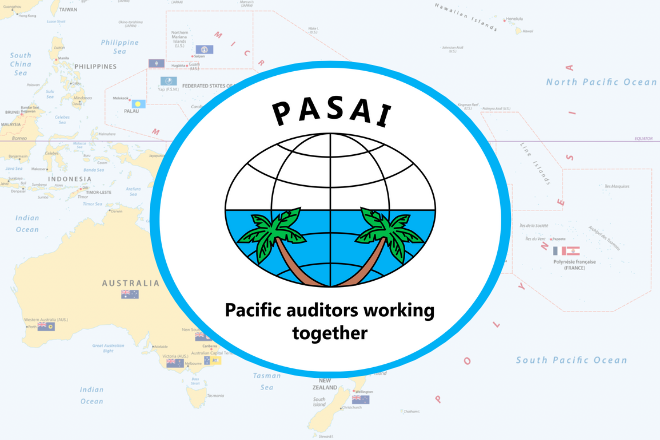
By the INTOSAI Journal and PASAI
Introduction
In late February to early March 2023, the Pacific Association of Supreme Audit Institutions (PASAI) held its 24th Congress in Palau, where SAIs from the region participated in a strategy development workshop for the region, and also reflected on the importance of good auditing, SAI independence, and fulfilling a SAI’s core mandate.
Hosted by the Office of the Public Auditor for the Republic of Palau, the panels and discussions emphasized the Congress’ theme of “Looking to the Future”. In line with the theme, attendees reflected on PASAI’s progress nearly nine years into its 10 year Strategic Plan, and start work developing its next strategy.
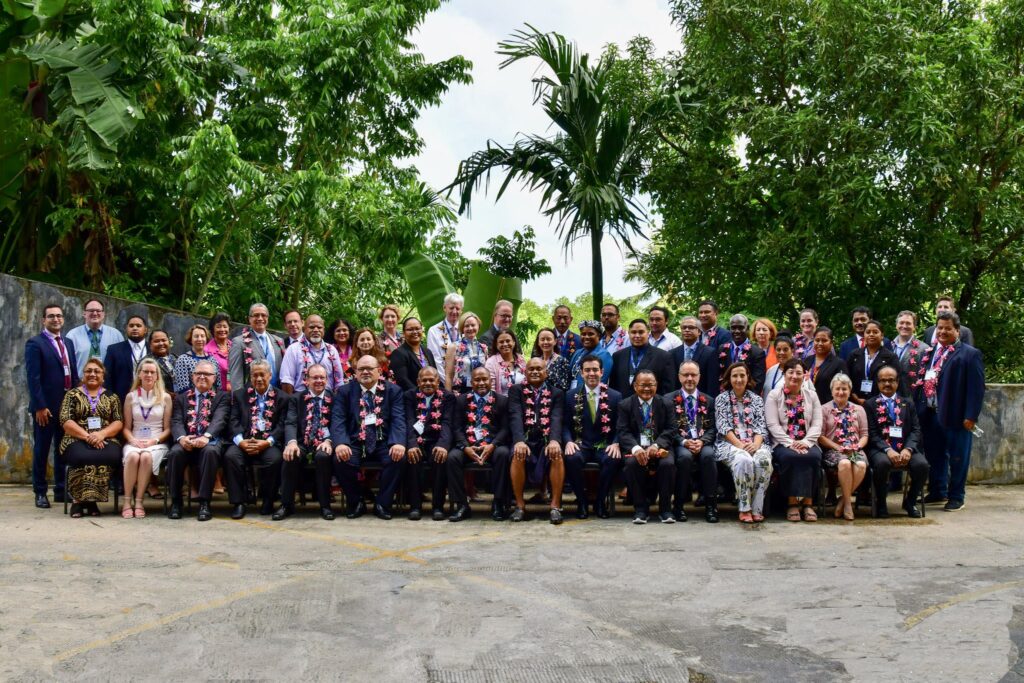
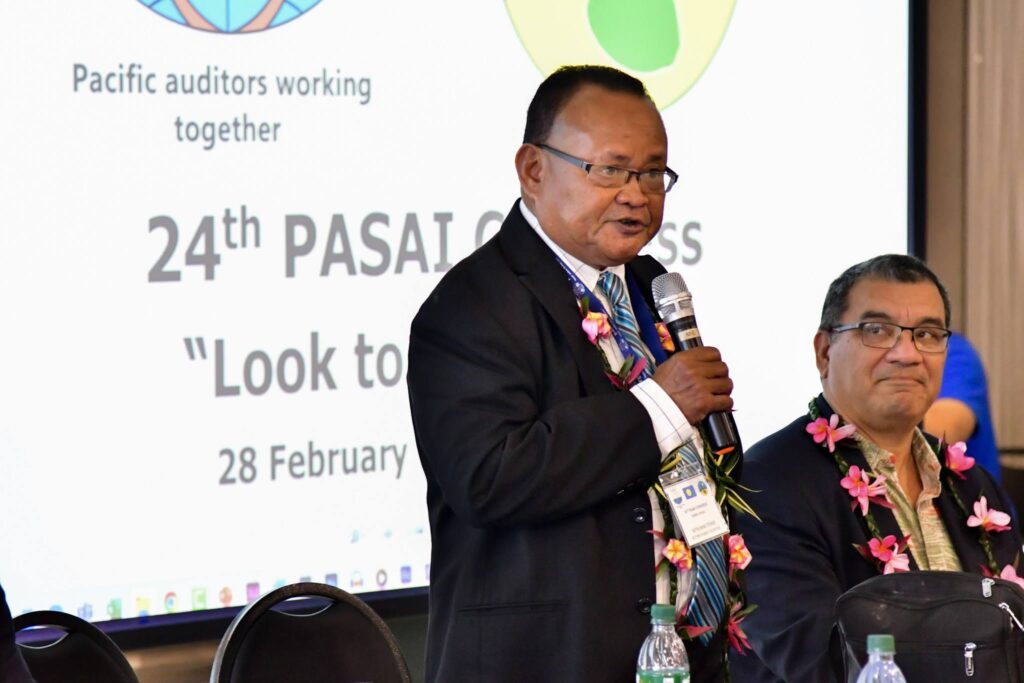
Collective Strategic Planning
As part of the PASAI Congress, heads of SAIs, development partner representatives, and PASAI Secretariat staff participated in a collaborative discussion to inform PASAI’s 2024–2034 Strategic Plan. With moderation by Tamerlaine Beasley, participants reflected during the day-long workshop on what the strategic priorities should be for the next 10 years.
As part of the strategic priority development, PASAI Congress participants considered the progress that had been made across each of the existing Strategic Priorities:
- Strengthening SAI independence
- Advocacy to strengthen governance and accountability
- High quality audits completed by Pacific SAIs on a timely basis
- SAI capacity and capability enhanced
- PASAI Secretariat capable of supporting Pacific SAIs
SAI heads concurred the priorities had steered PASAI well and reflected on their potential relevance to the next ten years of PASAI activities. Congress participants identified potential future challenges and opportunities in consideration of the next Strategic Plan.
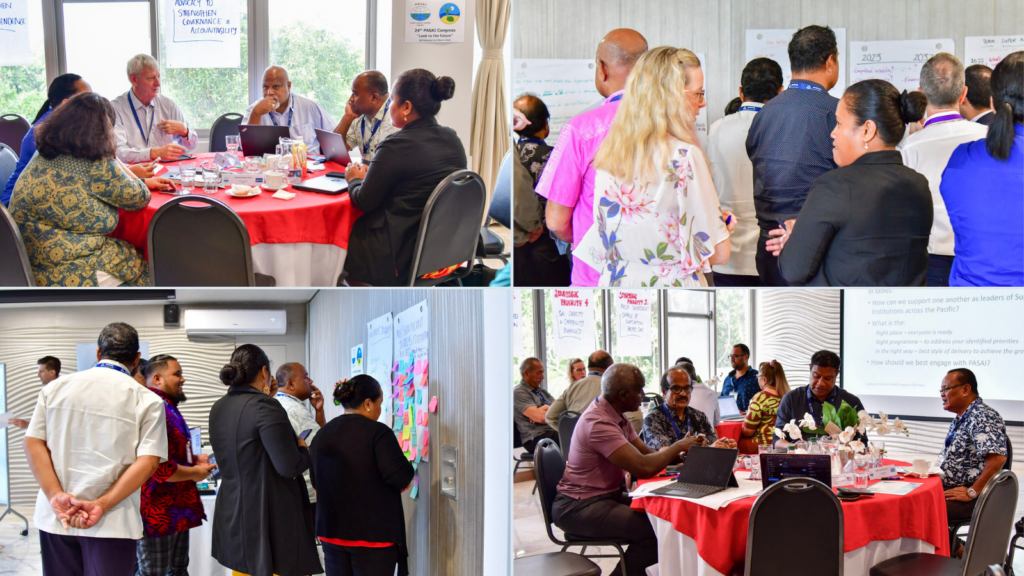
Participants discussed what they could do to maximize the influence and impact of quality auditing, and noted that conducting high quality audits in the right areas, and demonstrating value to stakeholders, were some ways to show their impact.
SAI heads had the opportunity to have detailed discussions with other Congress participants about what has helped and hindered PASAI in its work, how well it has succeeded in the past, what emerging issues are likely to affect its work in the future and what kind of activities PASAI should be prioritizing. The strategic development workshop also reflected on how PASAI has most significantly supported Pacific member SAIs. Responses included assistance with the completion of SAI Performance Measurement Framework (PMF) assessments of all 20 SAIs that are beneficiaries of PASAI programs; INTOSAINT, a tool to assess the integrity of SAIs; trainings; mentorship and twinning, and; resources.
Six of those present were also part of the development of the 2014–2024 PASAI Strategic Plan some 10 years earlier. They recalled the discussions for that strategy development process, and shared how PASAI has evolved since then.
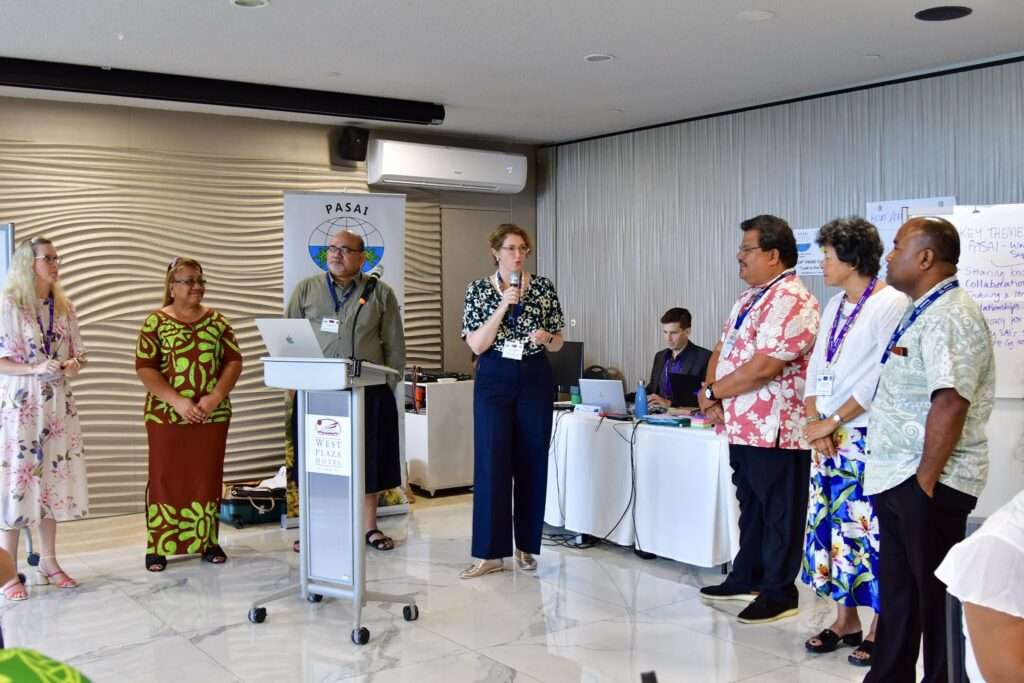
Workshop participants agreed that PASAI member offices would stand to benefit greatly by expanding regional peer-to-peer mentoring and knowledge sharing arrangements.
Following the strategic development workshop at Congress, PASAI conducted extensive consultation with PASAI members, development partners and stakeholders to inform the new Strategic Plan.
PASAI expects to finalize and adopt its new strategy for 2024 to 2034 at its next Congress in the Cook Islands in May 2024.
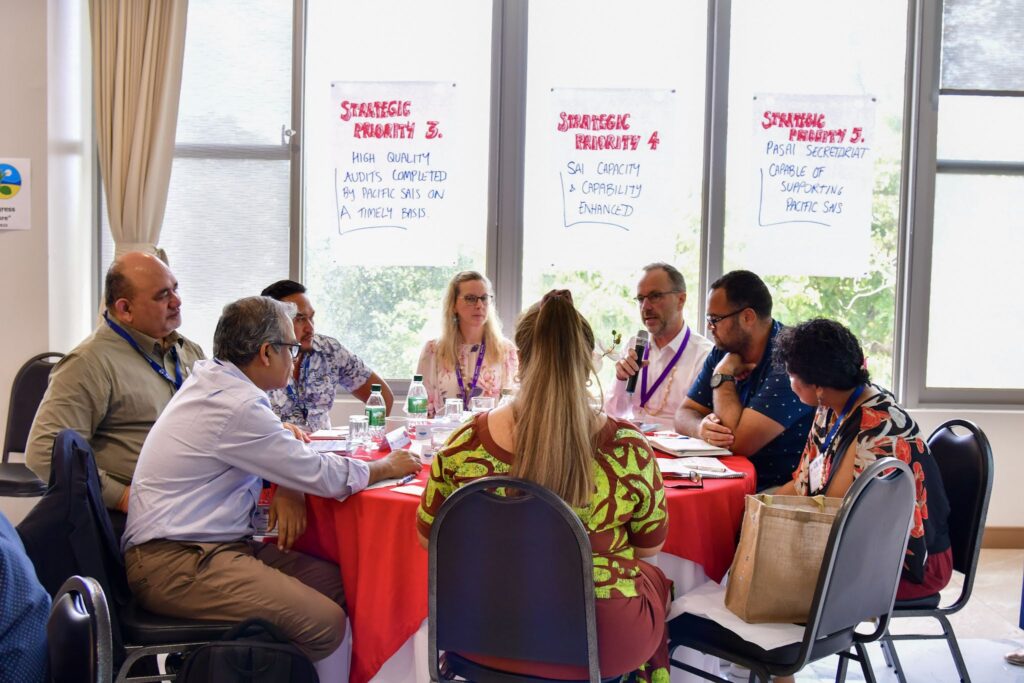
Regional Achievements, Cultural Contexts and Understanding
PASAI has members grouped into four sub-regions: Melanesia, Micronesia, Polynesia, and “Other”. During the Congress, each sub-region shared their challenges and achievements. They also reflected on the important issues of SAI independence, delivering quality in their core audit mandates, and achieving impact through their work for the benefit of their communities.
SAI heads shared creative responses to the question, “What reflects the importance of your work?” which set the tone for the working sessions. This tied the SAIs’ work to their cultural heritage and highlighted that there is a commonality of challenges, but also passion to maintain the important role of SAIs.
SAIs not only shared their challenges, but how they could overcome them. One example shared was that Pacific heads of SAIs could utilize their role as local leaders to negotiate, discuss, and define roles for their SAIs. By gaining trust, SAIs can leverage their credibility in the small island communities to improve stakeholder involvement and enhance audit impact.
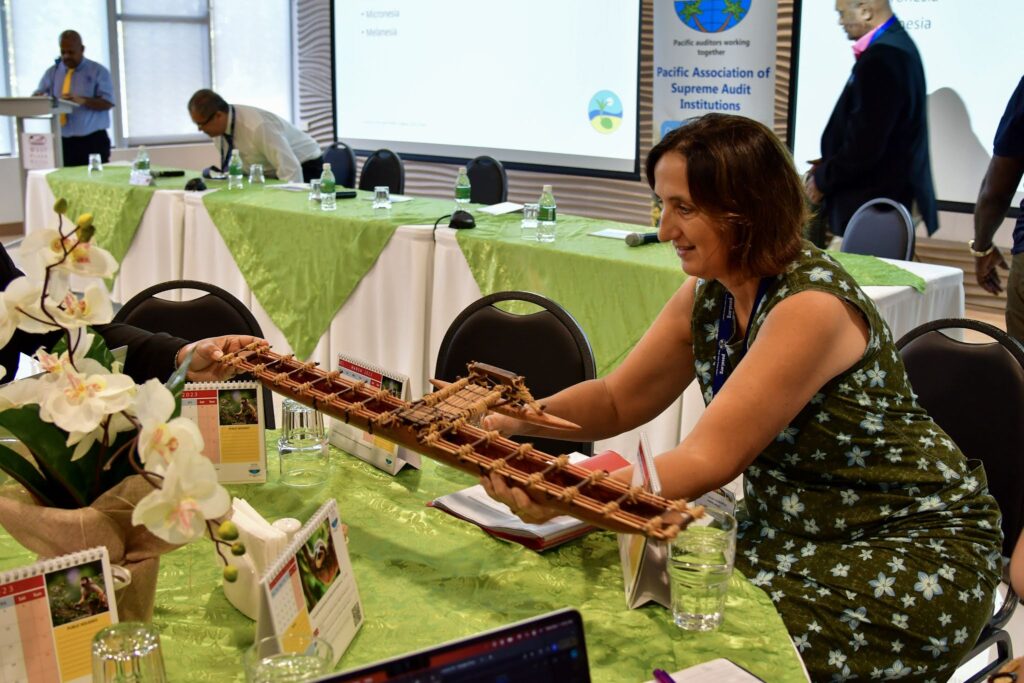
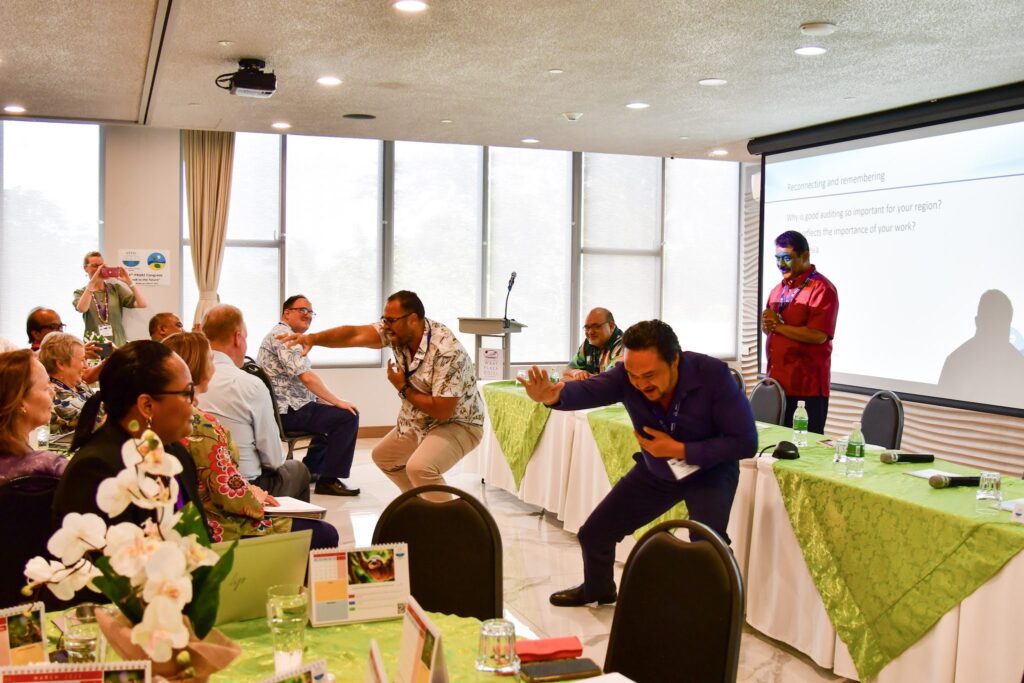
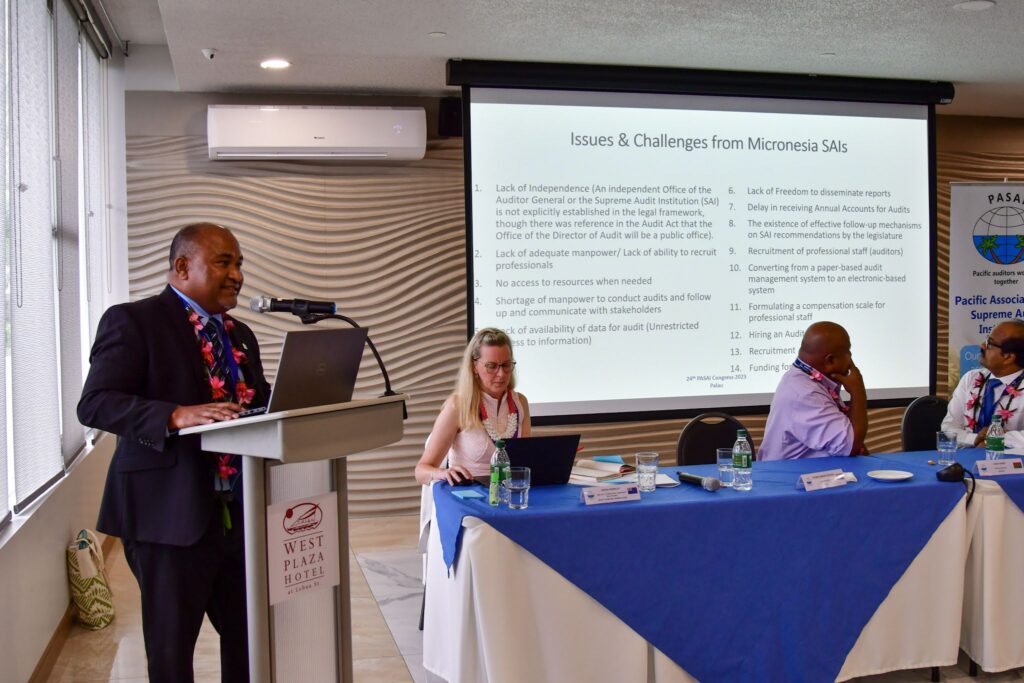
PASAI Congress Highlights Key Priorities Through Discussion Panels and Presentations
In addition to the strategic development workshop, the PASAI Congress attendees, SAI heads, and PASAI Secretariat staff reflected on key issues, including institutional independence, and securing quality in a SAI’s core mandate.
Exploring SAI Independence
Securing a SAI’s independence is integral, as SAIs can only be objective, credible and effective if they are independent from the audited entity and are protected from outside influence. With a complete set of SAI PMF assessments, PASAI now has a baseline measure of member SAI independence. During the Congress, some SAIs acknowledged their challenges to independence.
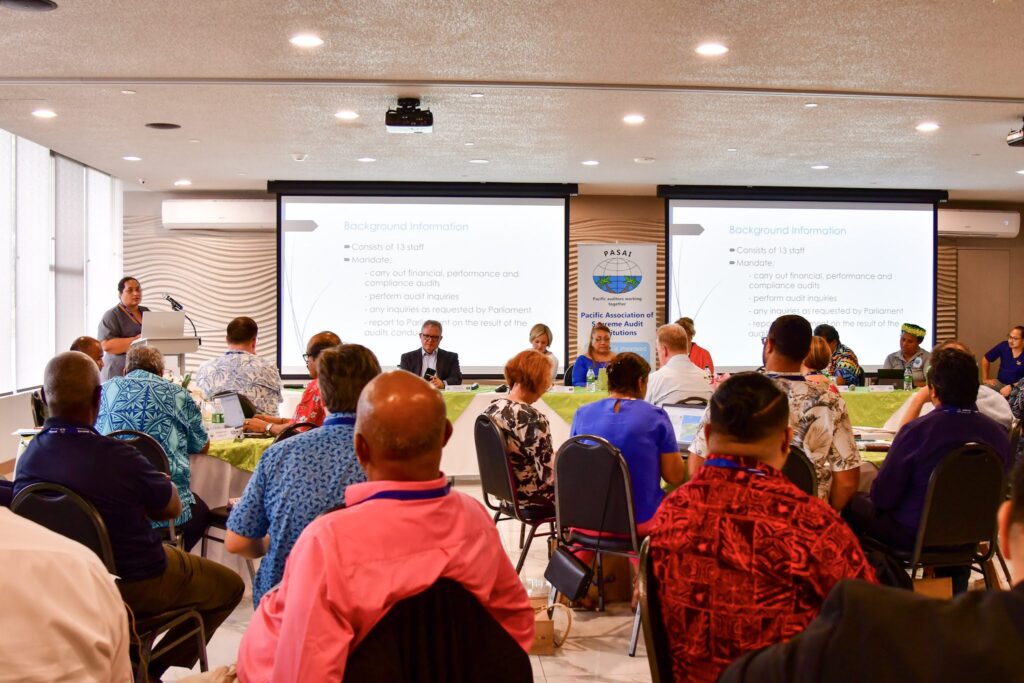
Auditor General Margaret Crawford of New South Wales moderated a panel exploring topics on SAI independence. The Auditor General of Tonga, Mr. Sefita Tangi; Deputy Director General of the INTOSAI Development Initiative (IDI), Ms. Archana Shirsat; Controller and Auditor General of New Zealand, Mr. John Ryan; Deputy Auditor-General for Australia, Ms. Rona Mellor, and; Public Auditor of Guam, Mr. Benjamin J.F. Cruz shared independence achievements, SAI independence trends around the world, challenges to independence in highly independent SAIs, and lessons from the challenges of member SAIs.
The journey from a low to high level of SAI independence may take time and requires persistent advocacy. For example, Mr. Tangi shared that it took 44 years for the Auditor General’s position to receive constitutional independence in the Kingdom of Tonga. Staff at the Office of the Auditor General now have more confidence in carrying out their SAI’s mandate, knowing their work has the full protection of the Constitution.
Ms. Shirsat shared that IDI provides a range of tools to help SAIs gain independence, monitor independence challenges and support SAIs with advocacy where needed. Where a SAI has high levels of independence it must be jealously guarded. In cases where SAI independence is under threat, IDI has a SAI Independence Rapid Advocacy Mechanism (SIRAM) available to support SAIs.
As various regions around the world face hurdles in achieving and maintaining their SAI independence, it continues to be an important theme for not just PASAI, but all of INTOSAI to focus on and act upon threats.
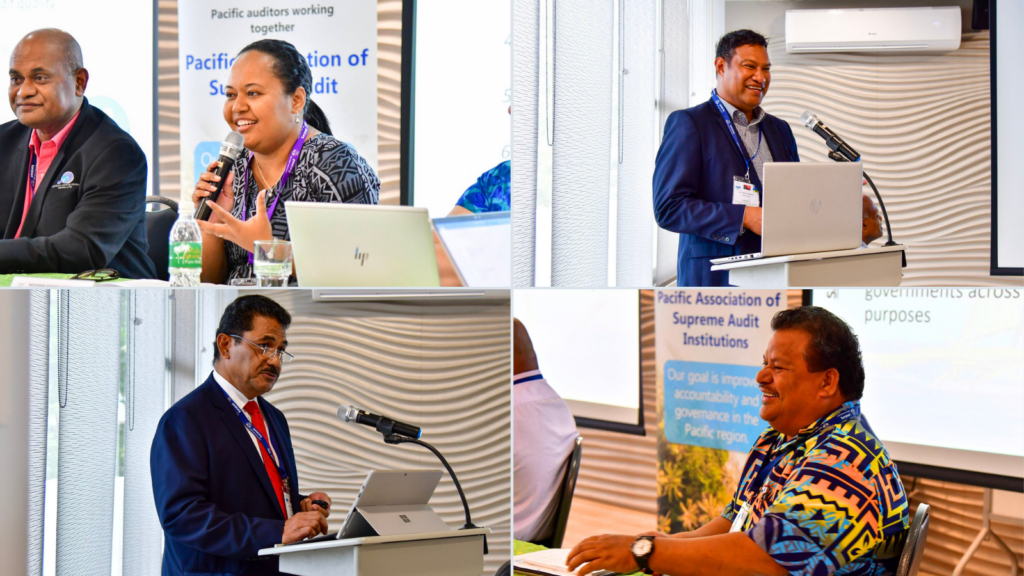
Securing quality in SAI’s core mandate
In a panel discussion about securing quality in SAIs’ core mandate, distinguished speakers and SAI heads from the Cook Islands, Fiji, the Australian Capital Territory, PASAI, the United Nations Development Programme (UNDP), and the Graduate School USA shared insights on the impacts that twinning support, quality assurance teams, other public finance management players, training, and small SAI environments have on ensuring and improving audit quality.
Out of these discussions on ways to ensure quality in audits, speakers shared key messages, including:
- Twinning and peer-to-peer support provide valuable ways of learning from the experiences of others.
- Quality assurance review processes build a culture of continuous improvement within SAIs.
- Training staff at a time that is close to when they will be able to apply the skills is the most effective way to learn.
- While technical training will be important, even more so is ensuring staff understand the values of their organization and apply these in all that they do.
Conclusion
The PASAI Congress provided a platform for robust discussions, insights, and initiatives aimed at improving public auditing in the Pacific region. The challenges faced by different SAIs underscored the need for continuous collaboration, capacity building, and a strong commitment to transparency and accountability. As PASAI looks ahead, the Strategic Plan aims to guide Pacific auditors in their collective journey towards enhancing audit quality and making a lasting impact.
View more photos from the 2023 PASAI Congress here, or by visiting https://bit.ly/4bFUM5L. All photos in this article are attributed to the INTOSAI Journal.

